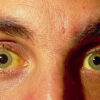“Will the FDA Kill Off E-Cigs?” the New York Times provocatively asked in an Op-Ed piece by Sally Satel. Ms. Satel is a resident scholar at American Enterprise Institute, a think tank focusing on what are generally considered conservative issues including limited government and competitive private enterprise,
Ms. Satel points out that the promise of e-cigarettes — that is, the hope that traditional cigarette smokers who have been unable to quit would switch to the presumably less deadly e-cigs — has been cobbled by substantiated fears of poorly constructed electric units, liquid tobacco with unknown ingredients including toxins and metals, and potentially cancer-causing chemicals in vapor.
Having noted that many of the e-cigs rushed to market seem to be unsafe, Ms. Satel then uses the rest of the column to argue that e-cigarettes shouldn’t be required to undergo the pre-market regulatory review that Congress has set up for any new tobacco product. Ms. Satel calls it “hugely burdensome” because it would have to show that a product is beneficial and study the consequences to teens and non-smokers. Ms. Satel calls the process “vastly time consuming and expensive” – she notes the FDA estimates it would cost $300,000 and 5,000 hours of work. All to show what? In her words, “the point of e-cigarettes is not that they are safe, but that they are significantly safer than cigarettes.”
Are e-cigs significantly safer than cigarettes? That’s really 2 questions:
1. Are the e-cigs on the market today reliably manufactured to safety standards? Answer, as Ms. Satel acknowledges, is that they are not reliably safe.
2. Is the use of e-cigs less medically dangerous to humans than are traditional tobacco products? Without research, how are we to know how nicotine and the other chemicals in vapor affect human lungs?
- Liquid nicotine is highly toxic and exposure through the skin or ingesting it can cause nausea within minutes, vomiting, eye irritation, and even death. Poison control calls involving e-cigarettes have increased from 1 a month in 2010 to 215 a month in 2014 –- 51% of them for children under 5 years old.
- Nicotine is a powerful vasoconstrictor which raises blood pressure and restrict blood flow.
 Dripping nicotine onto a heat source “can change the composition of e-liquids, creating new chemicals. Importantly, the researchers said, the chemical reactions apply not only to the liquid nicotine, but also to two other crucial ingredients in most e-liquids: vegetable glycerin and propylene glycol,” reported the New York Times. One researcher was quoted in this article as noting “that in certain conditions, E.C.s might expose their users to the same or even higher levels of carcinogenic formaldehyde as tobacco smoke.”
Dripping nicotine onto a heat source “can change the composition of e-liquids, creating new chemicals. Importantly, the researchers said, the chemical reactions apply not only to the liquid nicotine, but also to two other crucial ingredients in most e-liquids: vegetable glycerin and propylene glycol,” reported the New York Times. One researcher was quoted in this article as noting “that in certain conditions, E.C.s might expose their users to the same or even higher levels of carcinogenic formaldehyde as tobacco smoke.”
E-cigs are not the usual new product introduction that will take years to attract consumers. E-cigs have a built-in market of 42 million traditional smokers and those at risk of starting smoking. E-cig and open system vaporizer sales are projected to reach $2,300,000,000 in 2014. That’s $2.3 billion dollars. And the market increased 23% from 2013 to 2014.
Congress has set up intelligent guidelines to review all tobacco products before broad marketing. Nicotine is part of the tobacco plant. Is $300,000 too much to spend for FDA required research to see if e-cigs are safe for us to use? How dare anyone try to use such a laughable excuse. Vaping is big business with big profits and seemingly destined for even more growth. The question to be posed is not Will the FDA Kill Off E-Cigs but Why Don’t the Rules Apply to E-Cigs? There is no reason to exempt e-cigs and every reason to hold them to a high standard.








